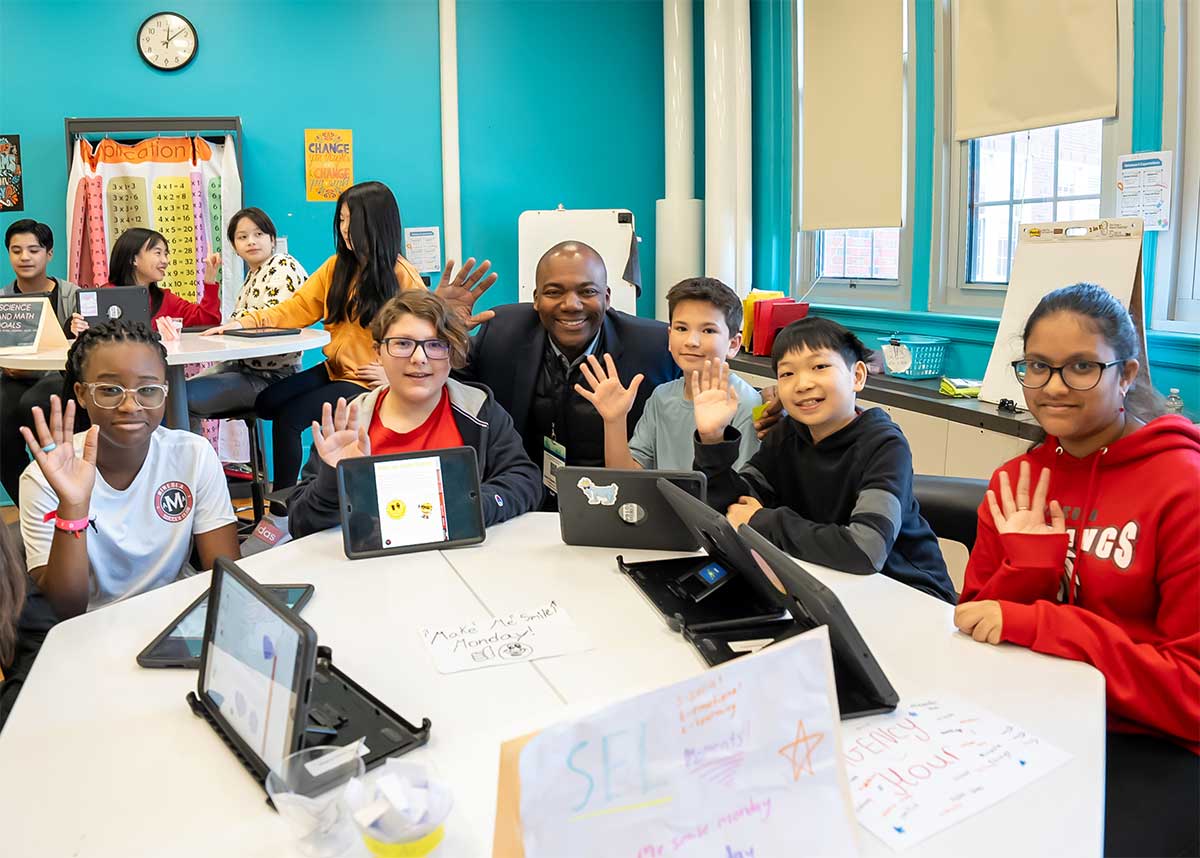To our friends, supporters, and partners:
The past year has been a pivotal one. In 2024, the rapid advancement of artificial intelligence (AI) and other emerging technologies dominated global attention, and the education community in particular found itself at a crossroads of new challenges and possibilities. Yet, at Digital Promise, this wasn’t a new conversation. Since our original founding in 2008 as the National Center for Research in Advanced Information and Digital Technologies, we have been at the forefront of this work. We’re proud to have continued to lead the charge, connecting the dots between what we know teachers and learners need to succeed and the innovations that technology developers are creating.

Our commitment to human-centered AI and education, grounded in a strong foundation of learning sciences research, continues to set Digital Promise apart. We informed major national policies, guided the work of other organizations, and created the foundational principles for AI literacy. Our focus remains on what this emerging technology means for curriculum, instruction, and the future of assessment. Through national research hubs like the EngageAI Institute and the U-GAIN Reading Center, we’re leveraging the expertise of researchers, technologists, universities, and education leaders to shape the future of education and build more equitable systems. As a multilingual learner myself, I am particularly excited about U-GAIN because it will shape how we can use generative AI to create new understanding and facilitate better teaching and learning for multilingual learners.
To further ensure these powerful technologies are used responsibly, we are also working to better organize the edtech marketplace. Our Responsibly Designed AI product certification, launched at the 2025 ASU+GSV Summit, provides a simple filter for school systems and educators to find products that are designed with learners in mind. In addition, our work with the Gates Foundation on math tech products will help create more effective tools and better support the vital work of teachers and school leaders. We also created a coalition with other leading edtech organizations—including 1EdTech, CAST, CoSN, ISTE, and SETDA—to ease the burden for schools of determining if an edtech product is of sufficient quality to be used by teachers and students.
Of course, Digital Promise’s work and impact extends far beyond AI and emerging technologies. In summer 2024, we launched Chronic Absenteeism: Insights and Innovations, a six-month program that engaged 17 school districts (15 of which were members of our League of Innovative Schools) in tackling this complex issue. Serving more than 210,000 students nationwide, this cohort uncovered root causes of chronic absenteeism and developed real solutions through a blend of research, district-community collaboration, and multi-tiered approaches.
Our Learner Variability Navigator (LVN) also continues to inform how technology and learning sciences can finally create truly personalized learning experiences for all children. We also launched a Portrait of a Graduate initiative that aims to identify key points for curriculum integration and recognize skills in ways that increase learners’ access to postsecondary learning and employment opportunities.
As we continue to push critical conversations and advancements in education, it’s an exciting time to be at Digital Promise. I am grateful for our amazing staff, our partners, and our generous funders who allow us to do the important work of shaping the future of education.
In partnership,

Jean-Claude Brizard
President and CEO, Digital Promise